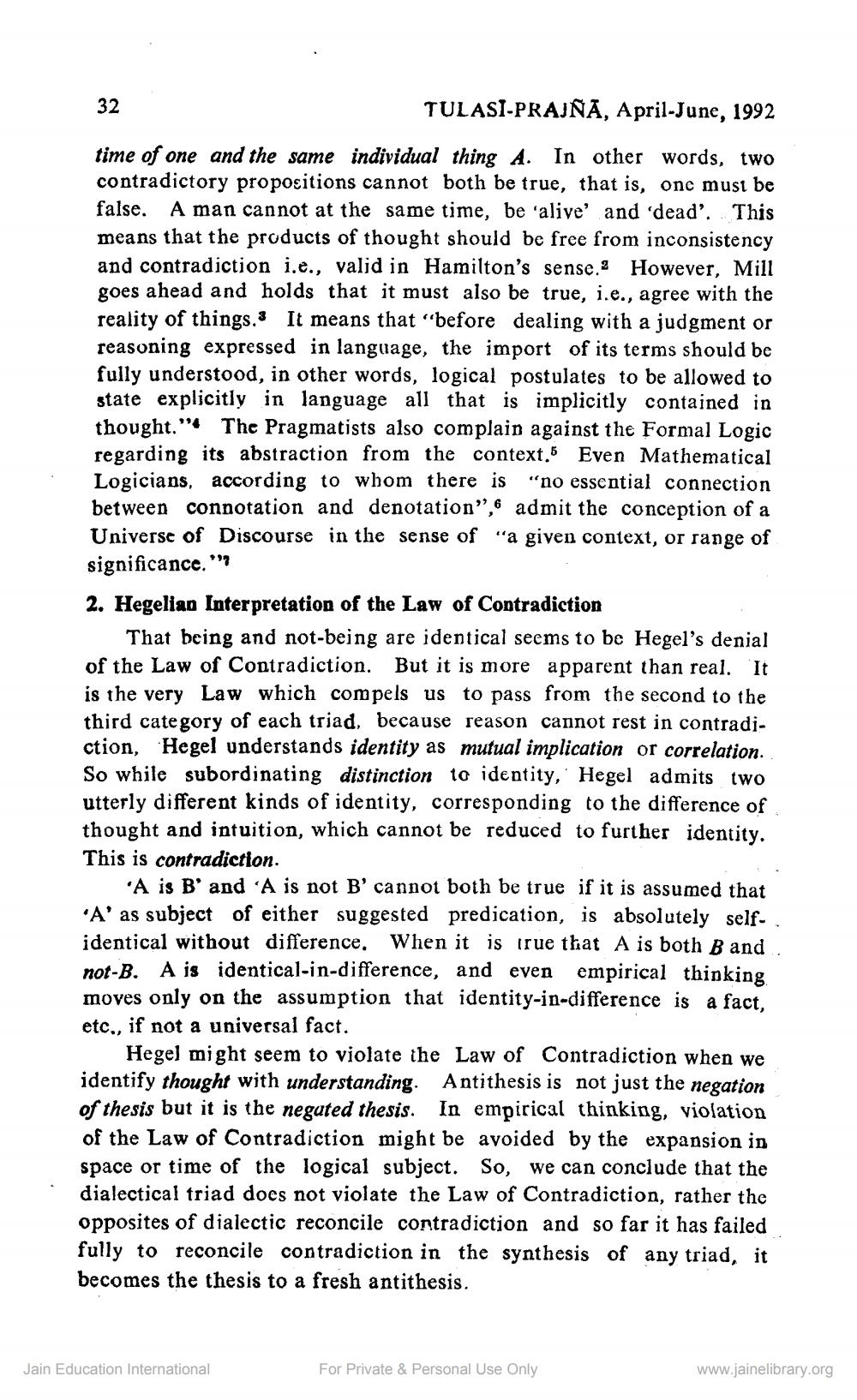________________
32
TULASI-PRAJNA, April-June, 1992
time of one and the same individual thing A. In other words, two contradictory propositions cannot both be true, that is, one must be false. A man cannot at the same time, be alive' and 'dead'. This means that the products of thought should be free from inconsistency and contradiction i.e., valid in Hamilton's sense. However, Mill goes ahead and holds that it must also be true, i.e., agree with the reality of things. It means that before dealing with a judgment or reasoning expressed in language, the import of its terms should be fully understood, in other words, logical postulates to be allowed to state explicitly in language all that is implicitly contained in thought." The Pragmatists also complain against the Formal Logic regarding its abstraction from the context. Even Mathematical Logicians, according to whom there is "no essential connection between connotation and denotation”, admit the conception of a Universe of Discourse in the sense of “a given context, or range of significance." 2. Hegelian Interpretation of the Law of Contradiction
That being and not-being are identical seems to be Hegel's denial of the Law of Contradiction. But it is more apparent than real. It is the very Law which compels us to pass from the second to the third category of each triad, because reason cannot rest in contradiction. Hegel understands identity as mutual implication or correlation So while subordinating distinction to identity, Hegel admits two utterly different kinds of identity, corresponding to the difference of thought and intuition, which cannot be reduced to further identity. This is contradiction.
A is B' and 'A is not B' cannot both be true if it is assumed that •A' as subject of either suggested predication, is absolutely selfidentical without difference. When it is true that A is both B and not-B. A is identical-in-difference, and even empirical thinking, moves only on the assumption that identity-in-difference is a fact, etc., if not a universal fact.
Hegel might seem to violate the Law of Contradiction when we identify thought with understanding. Antithesis is not just the negation of thesis but it is the negated thesis. In empirical thinking, violation of the Law of Contradiction might be avoided by the expansion in space or time of the logical subject. So, we can conclude that the dialectical triad does not violate the Law of Contradiction, rather the opposites of dialectic reconcile contradiction and so far it has failed fully to reconcile contradiction in the synthesis of any triad, it becomes the thesis to a fresh antithesis.
Jain Education International
For Private & Personal Use Only
www.jainelibrary.org




